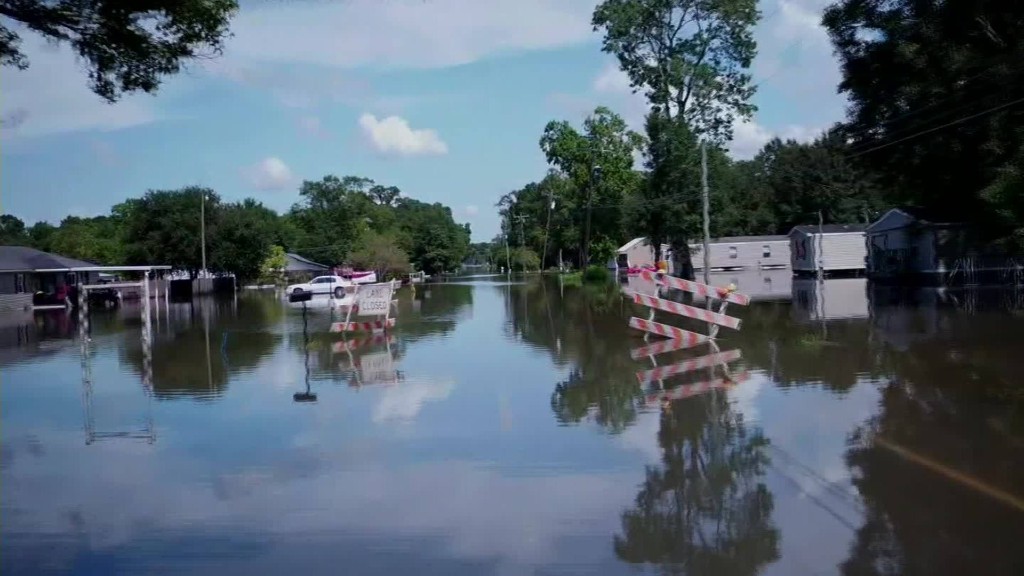
The floods that devastated Louisiana this week will make a bad state economy even worse.
The recent drop in oil prices has already led to the loss of about 2,000 oil and gas drilling jobs in the state over the last two years. That's pushed Louisiana's unemployment rate to 6.3%, the fourth-highest of any state in the nation.
Low oil prices also cut deeply into state government revenues, slashing projected taxes from the sector by $450 million in the most recent fiscal year. As a result, the legislature hiked the state sales tax and slashed spending. Louisiana has also made the maximum allowed withdrawal of $128 million from the state's emergency fund.
And even before the floods, the state expected to have another $200 million budget gap by January, said Jan Moller, director of the Louisiana Budget Project, a public interest group.
Related: Floods are worst U.S. natural disaster since Sandy
The flooding, which has affected at least 40,000 homes and stretched emergency resources, is yet another devastating blow to a struggling economy.
"It could make a big problem even worse," said Mark Zandi, chief economist for Moody's Analytics.
The total cost of the flood has yet to be calculated, but a comparable flood in Louisiana in May 1995 did about $3 billion in damages, according to the National Weather Service. That equates to about $4.7 billion in today's dollars.
Most of the funds required for cleanup and rebuilding will come from federal agencies, such as FEMA, and its National Flood Insurance Program. But part of the problem is that most of the homes affected by the flooding probably don't have flood insurance, according to statistics from FEMA. And private homeowners' insurance rarely covers the cost of flood damage.
And given Louisiana's financial woes, the state will have a hard time helping local governments recover from the flood.
"Community centers, schools, even emergency responders and hospitals, those are under tremendous strains," Zandi said. "There will be much less state help forthcoming."
Related: Most Louisiana flood victims probably aren't insured
Louisiana's economy could be permanently damaged if displaced residents decide not to return once the flood waters recede. The state's population plunged 6% in the year after Hurricane Katrina hit in 2005, and it took about six years for the population to return to pre-storm levels.
A weak labor market and two major natural disasters in 11 years might convince some victims to move elsewhere said Zandi. "A lot of these folks may decide that this is the time to leave, to find opportunity elsewhere."
And a sharp population decline would be another blow to the economy.
The Budget Project's Jan Moller says a lot will depend on how much federal aid Louisiana gets.
"In the long-term who knows will happen with the economy. We don't have enough college graduates. We're too energy reliant. We don't know how many people are going to stick around," he said. "But generally Louisiana people stay."


